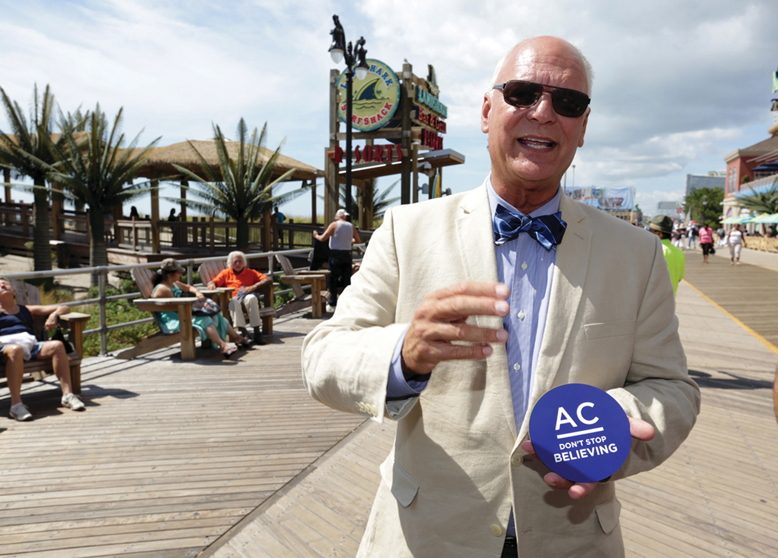
What to do about Atlantic City? With the news of four casino closings this year—and a fifth expected—the question is on the minds of many. Governor Chris Christie and a gaggle of political and business-leaders are gathering on a regular basis to seek answers. There’s no shortage of theorists on the future of Atlantic City, but the man who stands firmly at Ground Zero is Don Guardian, who was sworn in as the city’s 40th mayor in January. I recently had the chance to ask the 63-year-old mayor about his city’s future.
Steve Adubato: Are there any realistic scenarios for reopening any of the recently shuttered casinos?
Don Guardian: I don’t think there is any doubt that Revel is coming back. It is the most architecturally significant building in Atlantic City in the 35 years of gaming here. It needs the right owner and the right management company as a casino. I am confident we will see a casino open there in the spring.
SA: What about the other Boardwalk properties?
DG: Atlantic Club has a good chance [to come back] with individual owners. Showboat has had a couple of creative offers, not necessarily tied in with the casino, but with the House of Blues and other entertainment venues. The concept of Latitude 360, a state-of-the art restaurant and entertainment destination is a possibility.
SA: Who is responsible for keeping the dormant buildings in shape and the taxes paid?
DG: The people who own them cover the expenses. But then the question is, do you keep it as a hotel? Do you turn it into condos or a time share? Or a combo of all three? Another question is whether it is time to take down Trump Plaza, which would open up the center of town and allow us to connect the Boardwalk to the outlet stores and create a plaza and entertainment zone. Everything is on the table in terms of what is the best use for the property.
SA: What must Atlantic City do to win back gamblers lost to neighboring states?
DG: Places in Atlantic City like Borgata, Golden Nugget and Resorts have invested millions of dollars in their properties. They don’t see themselves as casinos. They see themselves as resorts with high thread count linens and great mattresses. Add to that nightclubs, spas, convention space and restaurants run by chefs you see on TV and these properties are well-designed for the future. They realized that the mix needs to go more toward non-gaming than gaming. Another draw will be new developments like the Bass Pro Shops that is planned for the end of the Expressway. Also, we are going to be focusing more on special events.
SA: What special events are working?
DG: The air show brought in 800,000 people. The Miss America pageant brought in 100,000. The triathlon was also a great draw. But the events that really stood out were the Blake Shelton and Lady Antebellum concerts, which brought in $23 million in just four days. And now is the time to get additional flights into Atlantic City so it is easier for people to fly here. We need to take advantage of the warm months for the Boardwalk, the beach, fishing and water sports. For the winter months, we have the convention and conference center.
SA: How has the state supported Atlantic City?
DG: The state provided $20 million in cash for the city so we didn’t have to raise the taxes as high as we originally thought we would. It was also instrumental in providing funding for Boardwalk and seawall reparation. I couldn’t ask for more support from Governor Chris Christie or Senate President Steve Sweeney. They call or e-mail on a weekly basis to ask how they can help. When it came down to the tough times, when people became unemployed with the casinos closing, the commissioner of labor and more than 50 people from Trenton came and set up stations to help people transition to unemployment, find new jobs and learn about available health plans.
